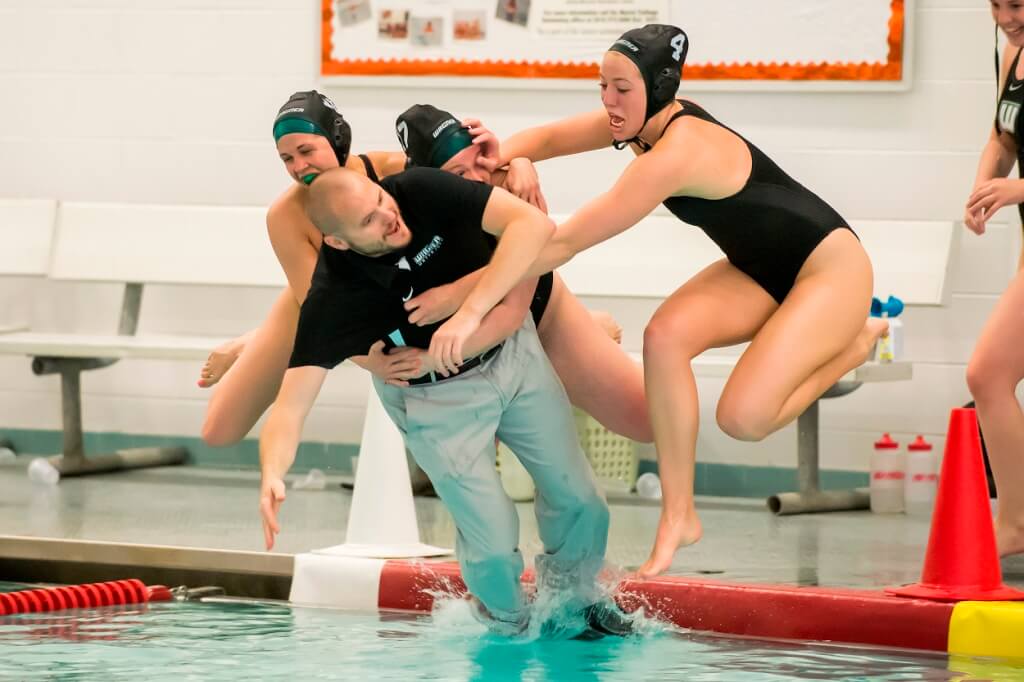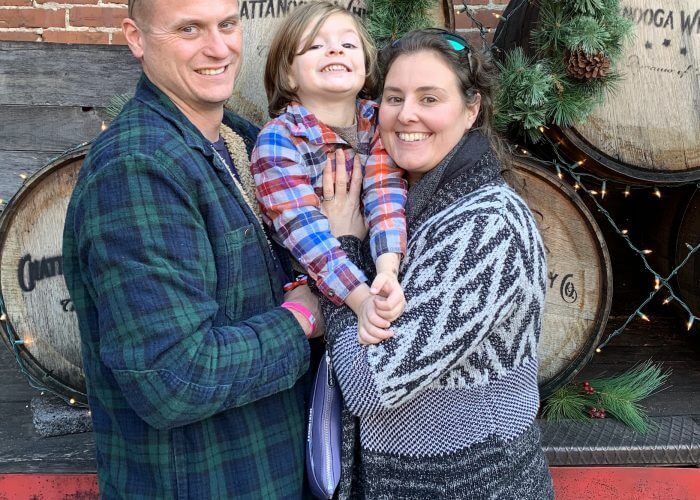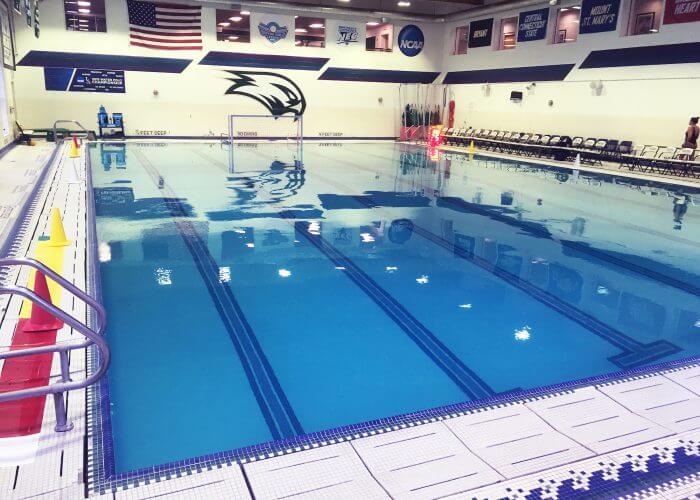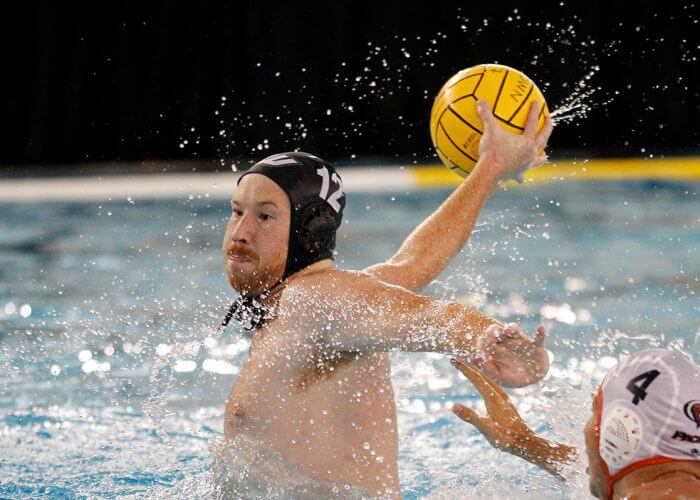Chris Radmonovich: From Celebrated Water Polo Coach to Dedicated Firefighter

Last July, in an unexpected East Coast water polo development, Chris Radmonivich, the men’s and women’s water polo coach at Wagner College in New York City, stepped down after nine years and 265 combined victories.
The surprise was not that he left—though he did compile an unparalleled record of success with the Seahawk women that included six-straight Metro Atlantic Athletic Conference titles and a conference unbeaten streak stretching back five years. Rather, it was his decision to forsake a promising career in collegiate water polo for a life as a search and rescue firefighter in Georgia that sent ripples through the tightly-knit world of Eastern polo, where Wagner was one of the region’s strongest programs.
[Radmonovich Steps Down After Nine Superb Years Leading Wagner Water Polo]
After graduating from the Dekalb County Fire Academy, Radmonovich is now in his third month as a fireman serving the greater Atlanta metropolitan region. In contrast to the COVIC-19 health crisis that has forced the suspension of sports across America , earlier this week Swimming World spoke with the former Seahawk coach about his career change, the current challenges America faces and how he, his wife Carina and son Halden will remain tethered to polo no matter where they are.
– What was it that compelled you to leave a successful program at Wagner?
I was a volunteer firefighter in New Jersey for the last three years or so during my time up there in New York and New Jersey. I started volunteering several years ago purely by luck. I was out on a run and saw a sign that said: Volunteers needed. I thought that would be a productive way to spend some of my time.

Chris, Halden and Carin Radmonovich. Photo Courtesy: C. Radmonovich
The guys there were awesome and taught me a lot. It was a working-class community, and they devoted their time to giving back to their community. I really enjoyed it; the more that I was there, the more that I thought that would be something that I would like to do as a career.
Not that I didn’t in any way enjoy my time at Wagner; I did. I loved it and I loved being there. There’s a lot of factors that went into that decision to leave, but how that whole things started is I really enjoyed being a volunteer fireman and the opportunities that I got—and it led me in this direction.
– Do you see the camaraderie that exist in water polo as similar to what you’ve experienced as a firefighter?
Absolutely. There’s a lot of similarity between team sports and certain types of professions, whether it’s a doctor, or firefighter or police officer. I think there’s a lot of similarities between team sports and the attitude of people in those professions.
– In your time at Wagner, the Seahawk women were consistently one to the best programs in the East—and second to none in the MAAC. Those teams had some great individual talents, but it is the way they played as a team that was perhaps most impressive.
Obviously, Wagner came before I was a firefighter—before I was volunteering in Jersey. The culture that developed [in our program] developed largely out of… the athletes have to get credit for developing that culture. The coaches might have looked to point them in the right direction but they’re the ones who had the reins of where things were going to go.
Starting with the first team I had there, which is when I started, they were the foundation and every year after them came of building on that foundation of all in for each other.
– Your men’s and women’s teams epitomized a drive for success—both for the moment but also for the long-term.
That’s the thing that you see in any successful sports team—or any successful team in whatever it is you’re trying to accomplish. That you create a competitive environment to be successful in—which is incredibly difficult, and athletes are under pressure with that all the time. Ultimately, they’re the ones who decide that—a decision to compete, every day is your conference championship, or every day is your biggest game of the year.
– Was there anything in your Wagner experience that might have been done differently to change your mind about leaving?
In looking back and where I am now, there’s nothing that would have changed my decision. My decision was largely based on my family. And my son was the biggest factor. I lived in Jersey, I was commuting two hours every day. Tuesday was my day off; other than that I was up in New York every day. I just didn’t get to soend the time with my son that I wanted.
Which seems a bit odd because of the profession I chose, but I work nine days a month now. I work 24-hour shifts and I’m home way more than I was.
In leaving coaching, that was the biggest factor; I wanted to be home with my son more and spend more time with him—especially as he’s [almost] four and soon he’ll be going to school. I saw that time running out that I would be able to spend a lot of days with him.
That was the biggest factor in my decision.
– The Wagner shallow/deep pool challenged opponents but also obstacles to practice. Did your players take a certain amount of pride in excelling despite these challenging conditions?
It became a reason [for our players to] succeed, that despite any limitations they had that they could be successful. And it’s not that Wagner didn’t do what they were supposed to because they did a phenomenal job. We got support from Walt Hamline (Wagner Athletic Director) and Brendan Fahey (Associate AD). They did amazing work in helping bring that program forward.

Photo Courtesy: M. Randazzo
Once we got things going and needed the push to get help from them, they did everything they could to move things forward. Unfortunately, they just didn’t have the millions of dollars available to build a new pool; given the opportunity they probably would have.
Being from a small school and not having the facility that Princeton has or some of these bigger programs—it certainly was in the back of their minds.
– Are there any particular moments about your time at Wagner that stick out the most?
There are a lot of little moments that led to our success—and were very exciting in their own right and were very big moments. My very first year we beat Maryland back when they had a team and was very good, and we were able to win at their pool.
That was my first year and the team was on its way.
There’s these moments all along; it’s not every year that there was a game or a moment throughout that season that signified the next step is coming. But there was always one or two things that kept the program moving forward.
– And it was a program poised to do even better this season…
I watched as many games as I could this year [and] I talk to Ciaran [Wolohan] on a regular basis. I talk to a lot of the athletes throughout the season. I was planning on being up there in the next month to see some games.
There’s no regrets but there definitely moments that I missed… not so much the games [but] being around the athletes and Ciaran and Bailey. Those things are much more missed than the wins.
– There is a great deal of apprehensions a result of the coronavirus outbreak. What are your thoughts on how to combat this pervasive anxiety.
That’s a tough question. I don’t want to make it [seem] as if I have done or are doing anything close to what others are doing. I’m the new guy; I came down here and went to the academy like everybody else. I’ve only been on shift here for two – two-and-a-half months. So, I’m the new guy doing what I’m told.
The positive is you see a lot of people doing a lot of good things. It’s great that they’re involved with this stuff—folks who have come through nursing school or who are teachers, doing what they need to do to educate students. The nurses and the doctors who are on the front lines.

Ciaran Wolohan, a star for the Seahawks, has followed in Radmonovich’s footsteps. Photo Courtesy: Wagner Athletics
As a country, everybody’s stepping up and doing the things to get us back to normal.
That’s the positive; when things are getting tough, as a community everybody steps up and does what they need to do to get things back in the direction they were.
– The Radmonovich family has water polo in their blood; what will be the next step in this path for you and your family?
I think Carina definitely will be involved in water polo. In the fall I refereed some high school games—there’s some talent in this part of the country. Hopefully as we get more settled and are able to have a more time we’ll get involved.
They have a good-sized high school program and there’s a couple of water polo clubs that got our to JOs the last few years. Maybe another club or two will be popping up in the area.
At some point we will definitely be involved. I can’t keep my son out of the water—so I’m sure he will get started as he gets older.




Thanks for the interview Michael! Coach was instrumental in my daughters life, as she was the first Polo player to graduate with a Nursing degree. This accomplishment only happened with her determination to be the first, as well as the support of Coach and her teammates. It was the time management, internal discipline, the guidance from the Academic and Athletic staffs that have afforded her the opportunity to take those skills to her nursing career at Johns Hopkins Hospital. We thank Coach and all the others!! WagDad’19